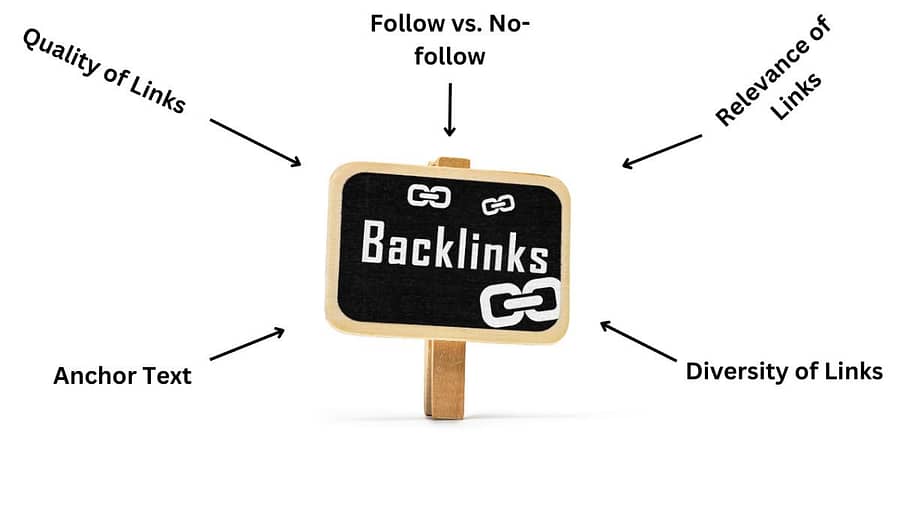Search engine optimization (SEO) is a field that is always changing. Some rules stay the same, while others are always changing to meet the needs of both users and search engines. E-A-T stands for Expertise, Authoritativeness, and Trustworthiness.
This is an old principle that has become more important in recent years. Knowing and using E-A-T principles can make a huge difference in your website’s SEO and overall online presence
What is EAT in SEO?
Expertise, Authoritativeness, and Trustworthiness are the letters that make up E-A-T. Google first used this idea in its Search Quality Evaluator Guidelines. For example, If I say I am an SEO expert in Kerala, I should have given proper signals to Google to showcase my expertise. When figuring out how good and relevant web content is, Google’s algorithm gives these three things a lot of weight. Take a look at each part of E-A-T to see what it does in the digital world:
Expertise
Expertise refers to the knowledge and skills that website owners, content creators, and authors show.
Google checks to see if people or groups with relevant expertise in the field wrote the content.
This is especially important for legal, medical, and financial websites, where correct and trustworthy information is very important.
Authoritativeness
According to the SEO expert Kerala Authoritativeness is about how trustworthy and important the person who created the content, the author, or the website is in its niche or industry. Websites known as reliable sources in their field are more likely to do well in search results.
Good backlinks, citations, and peer praise are common ways to build authority.
Trustworthiness
Trustworthiness includes how reliable and honest the content is. Google checks the website and its content to see if it can be relied on to give correct and useful information. Clear and transparent authorship, privacy policies, and the absence of spammy or malicious content are all signs that something is trustworthy.
Why is EAT important in SEO?
Google’s ongoing efforts to improve the quality of search results and fight misinformation have made E-A-T more well-known in recent years. You can sum up how important E-A-T is in SEO in the following ways
- A rise in search rankings:
Search engine results pages (SERPs) are more likely to rank higher for websites and content that show they are knowledgeable, trustworthy, and authoritative. It is Google’s job to show users trustworthy content, and E-A-T is a big part of figuring out how good the content is.
- Better experience for users:
E-A-T has a lot to do with how happy users are. Users will likely be satisfied with content that shows expertise and trustworthiness. Your website can give users a better experience if it has useful, correct, and trustworthy information.
3. Credibility and a good name:
E-A-T isn’t just about SEO; it’s also about building and keeping the credibility and reputation of your website. Websites that people know and trust are more likely to build a loyal following and become well-known in their field.
Simple Ways to Make Your Website E-A-T Better
Now that we know how important E-A-T is in SEO let’s look at some real-world ways to make your website more knowledgeable, trustworthy, and authoritative:
1. Spend money on good content:
Good content is what E-A-T is all about. Ensure that your content is correct, current, and based on solid research. Back up your claims with reliable sources, and make sure the information you give is clear and well-organized.
2. Show off the author’s skills:
Show off the skills of the people who write and create your content. Give bios and credentials for the authors that show how knowledgeable and experienced they are in the field. When it makes sense, link to their professional profiles or writings.
3. Become an expert in your field:
To appear more authoritative, become a well-known expert in your field or niche. This could mean writing guest posts for other reputable websites, getting backlinks from those websites, and being active in online communities related to your niche.
4. Openness and Signs of Trust:
Be clear about what your website is for, who owns it, and how it handles privacy. Show your users trust signals, like badges or certifications, to make them feel good about your site. Avoid ads that get in the way and put user privacy first.
5. Keep an eye on and take care of your online reputation:
Engage with your audience, respond to feedback and comments, and monitor any negative reviews or mentions to keep an eye on your website’s reputation. Being open and responsive can help people trust you more.
6. Keep the content up to date:
Make sure that your content is always correct and up to date. Update old information on your website and add new content regularly to keep it relevant and trustworthy.
7. Links and citations:
Get good backlinks and citations from websites that are authoritative in your niche. This not only improves the SEO of your site but also makes it more trustworthy.
Conclusion
Expertise, Authoritativeness, and Trustworthiness (E-A-T) are important concepts in the digital age that greatly affect SEO and the credibility of your online presence. By putting these things first, you can improve your website’s search rankings and user experience and build a good name for yourself in your niche. E-A-T is your road map to success in the digital world, where trust and information are very important. Remember that it’s not enough to optimize for search engines; you must also earn your audience’s trust.

